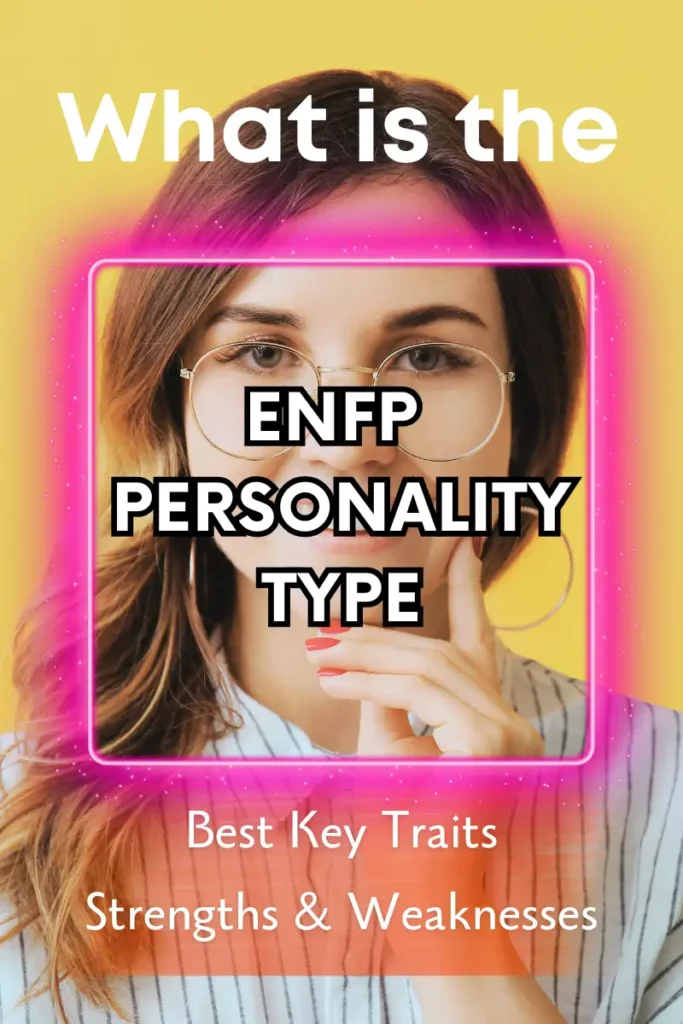Have you ever met someone who just radiates enthusiasm and optimism, lighting up the room with their energy? Someone who loves to explore new ideas, seeks out adventures, and makes genuine, deep connections with others? If so, you’ve likely encountered an ENFP. Known as the “Campaigner,” ENFPs are one of the 16 Myers-Briggs® personality types, celebrated for their creativity, charisma, and unrelenting curiosity about life.
ENFPs are driven by a deep need to explore possibilities and make a meaningful impact on the world around them. They thrive in environments that encourage creativity, freedom, and authenticity. However, their free-spirited nature often comes with challenges, including struggles with routine, decision-making, and staying focused on long-term goals.
In this comprehensive guide, we’ll explore what makes ENFPs so unique, highlighting their key traits, strengths, and weaknesses of the ENFP personality type. Whether you’re an ENFP yourself or trying to understand someone close to you, this guide will help you dive deep into the world of the Campaigner.
Table of Contents
Understanding the ENFP Personality Type
The ENFP personality type is one of the 16 types identified by the Myers-Briggs Type Indicator (MBTI), a system based on the psychological theories of Carl Jung. ENFPs are often described as outgoing, creative, and compassionate individuals who thrive on exploring new ideas and building meaningful relationships.
As an ENFP, life is often viewed as a series of exciting opportunities waiting to be discovered. Whether it’s through creative projects, intellectual discussions, or spontaneous adventures, ENFPs are constantly searching for ways to make life more fulfilling and meaningful. They are naturally curious and open-minded, always eager to explore the unknown.
Before we dive into their strengths and weaknesses, let’s break down what ENFP stands for and how these traits manifest in their personality.
What Does ENFP Stand For?
Extraverted (E): ENFPs are social butterflies who gain energy from being around others. They thrive in lively social settings where they can interact with a wide variety of people, exchanging ideas and sharing experiences.
Intuitive (N): ENFPs focus more on possibilities, ideas, and concepts rather than concrete details. They are big-picture thinkers who are drawn to what could be, rather than what is.
Feeling (F): When making decisions, ENFPs prioritize emotions and values over logic. They are deeply empathetic, often basing their choices on how they feel and how their decisions will impact others.
Perceiving (P): ENFPs love flexibility and spontaneity. They prefer to keep their options open, enjoying the freedom to adapt and change plans as new opportunities arise.
The Campaigner: A Brief Overview

ENFPs are often called the “Campaigner” personality type because of their innate ability to inspire others and rally people around a cause or idea. With their boundless energy and infectious enthusiasm, they bring people together, creating an atmosphere of excitement and possibility wherever they go.
ENFPs are driven by their desire to experience life to the fullest. They seek deep, meaningful connections with others, and they are always looking for ways to bring joy, creativity, and inspiration into the lives of those around them. Whether it’s through a spontaneous trip, a creative project, or a passionate conversation, ENFPs thrive on exploring new experiences and ideas.
However, their need for freedom and exploration can sometimes make it difficult for them to stay grounded. ENFPs may struggle with routine, discipline, and following through on long-term commitments. Their excitement for new ideas often pulls them in many different directions, making it hard to focus on just one thing at a time.
Core Traits of the ENFP Personality Type
ENFPs are known for their unique blend of creativity, empathy, and adventurous spirit. These traits shape how they interact with the world and influence their relationships, careers, and personal growth.
Let’s take a closer look at some of the core traits that define the ENFP personality type.
Curiosity and Enthusiasm

ENFPs are insatiably curious. They have an endless thirst for knowledge, ideas, and new experiences. Whether it’s learning about a new culture, picking up a creative hobby, or diving into a philosophical discussion, ENFPs are always eager to explore what the world has to offer.
This curiosity is coupled with a contagious enthusiasm that makes ENFPs incredibly fun to be around. They bring energy and excitement to any situation, and their zest for life often inspires others to join them on their adventures.
Empathy and Compassion

One of the standout traits of ENFPs is their deep sense of empathy. ENFPs have a unique ability to understand and connect with the emotions of others, making them incredibly compassionate friends and partners. They genuinely care about the well-being of those around them and will go out of their way to offer support, encouragement, or a listening ear.
This empathy also makes ENFPs highly attuned to the emotional dynamics of their environment. They can often sense when something is off, even if no one has explicitly said anything. ENFPs thrive in relationships where they can connect on an emotional level and share their feelings openly.
Creativity and Imagination

ENFPs are creative powerhouses. They have vivid imaginations and are constantly coming up with new ideas, whether it’s a creative project, a business venture, or a new way to solve a problem. ENFPs are drawn to artistic pursuits like writing, painting, music, or filmmaking, and they often express their ideas in unique and imaginative ways.
Their creativity also extends to their problem-solving abilities. ENFPs love thinking outside the box and are often the ones who come up with innovative solutions that others may not have considered.
Free-Spirited and Adventurous

ENFPs are free spirits who dislike being tied down by rules, routines, or rigid structures. They crave adventure and spontaneity, and they thrive in environments that allow them the freedom to explore new experiences. Whether it’s traveling to a new place, trying out a new hobby, or meeting new people, ENFPs are always seeking ways to keep life exciting and fresh.
This free-spirited nature can sometimes make it difficult for ENFPs to stick to long-term commitments or follow through on plans, but their adventurous outlook on life often leads to exciting, unexpected experiences.
Strengths of the ENFP Personality Type
ENFPs possess a unique set of strengths that make them stand out in both personal and professional settings. These strengths often lead them to success in creative, people-centric, and visionary roles.
Let’s explore some of the key strengths of the ENFP personality type:
Inspirational and Enthusiastic

ENFPs have a natural ability to inspire those around them. Their enthusiasm for life and their infectious optimism can motivate others to pursue their dreams and explore new possibilities. Whether they’re leading a team, starting a creative project, or simply having a conversation, ENFPs know how to make people feel excited and energized.
Their passion for life is contagious, and they often serve as a source of inspiration for those around them.
Creative Problem-Solving

ENFPs excel at creative problem-solving. Their ability to think outside the box allows them to approach challenges from new and innovative angles. Rather than getting stuck in traditional ways of thinking, ENFPs are constantly brainstorming new solutions and exploring unconventional methods to solve problems.
Their natural curiosity and love for experimentation make them excellent at finding creative, out-of-the-box solutions that others might miss.
Strong Interpersonal Skills

ENFPs are masters of building relationships. Their empathy, warmth, and open-mindedness allow them to connect with people from all walks of life. They have a natural ability to make others feel comfortable and valued, which helps them build deep, meaningful relationships.
ENFPs excel in social settings, and their interpersonal skills make them great team players, friends, and partners.
Open-Minded and Accepting

One of the standout traits of ENFPs is their open-mindedness. They value individuality and are deeply accepting of others, regardless of their differences. ENFPs are non-judgmental and inclusive, always willing to hear new perspectives and embrace diverse ideas.
This openness allows ENFPs to connect with a wide variety of people and appreciate the unique qualities that each person brings to the table.
Optimistic and Resilient

Even in challenging situations, ENFPs maintain a positive outlook. They are optimistic by nature, always believing that things will work out in the end. This resilience helps them bounce back from setbacks and keep moving forward, even when faced with obstacles.
Their hopeful attitude is a source of strength, allowing them to stay motivated and continue pursuing their goals, no matter the challenges they face.
Weaknesses of the ENFP Personality Type
While ENFPs have many strengths, they also have their share of weaknesses. Understanding these weaknesses can help ENFPs navigate their personal and professional lives more effectively and avoid some of the challenges that come with their personality type.
Let’s take a closer look at some of the key weaknesses of the ENFP personality type:
Easily Distracted

ENFPs’ love for new ideas and possibilities can sometimes make it difficult for them to stay focused on one thing at a time. They are easily distracted by new projects or opportunities, which can lead to unfinished tasks or a lack of follow-through.
While their curiosity and enthusiasm are strengths, ENFPs may struggle with staying committed to long-term goals or seeing projects through to completion.
Overly Idealistic

ENFPs have a tendency to be overly idealistic, which can lead to disappointment when reality doesn’t match their expectations. They often set high standards for themselves and others, and they may become frustrated when things don’t go according to plan.
This idealism can sometimes cause ENFPs to overlook practical considerations or become disheartened when they encounter challenges.
Struggle with Structure and Routine

ENFPs thrive in flexible, spontaneous environments, but they often struggle with structure and routine. They dislike rigid schedules and may find it difficult to stay organized or adhere to strict deadlines.
Their preference for freedom and variety can sometimes make it challenging for them to manage day-to-day responsibilities or stick to long-term plans.
Emotional Sensitivity

ENFPs’ deep empathy can also make them emotionally sensitive. They are highly attuned to the emotions of others, which can sometimes make them vulnerable to taking things too personally. ENFPs may feel hurt by criticism or conflict, even when it’s not intended to be personal.
This emotional sensitivity can also lead to stress or anxiety, especially in situations where they feel misunderstood or unsupported.
Difficulty Making Decisions

With so many possibilities to explore, ENFPs may struggle with making decisions. They often want to keep their options open, which can lead to indecision or difficulty committing to a specific path. ENFPs may fear that making one choice will close the door on other exciting opportunities, which can cause them to hesitate or second-guess themselves.
While their open-mindedness is a strength, it can also make it challenging for the ENFP Personality Type to settle on one course of action.
15 words that best describe the ENFP Personality Type:
Enthusiastic
Curious
Empathetic
Creative
Spontaneous
Idealistic
Charismatic
Optimistic
Visionary
Adventurous
Imaginative
Passionate
Open-minded
Warm
Energetic
ENFP Personality Type Cognitive Functions:
The following table displays the whole cognitive function stack for the ENFP personality type.
| SL No. | Roles | Cognitive Functions |
| 1. | Dominant/Hero/Heroine/Leading | Extraverted Intuition (Ne) |
| 2. | Auxiliary/Good Parent/Supportive | Introverted Feeling (Fi) |
| 3. | Tertiary/ Relief/ Eternal Child | Extraverted Thinking (Te) |
| 4. | Inferior/Aspirational/Anima or Animus | Introverted Sensing (Si) |
| 5. | Opposing/Villian/Backup | Introverted Intuition (Ni) |
| 6. | Critical Parent/Witch/Senex/Discovery | Extraverted Feeling (Fe) |
| 7. | Trickster/Blind/Deceiving/Comedic | Introverted Thinking (Ti) |
| 8. | Demon/Devilish/Angelic/Transformative | Extraverted Sensing (Se) |
Key Communication Traits of the ENFP Personality Type
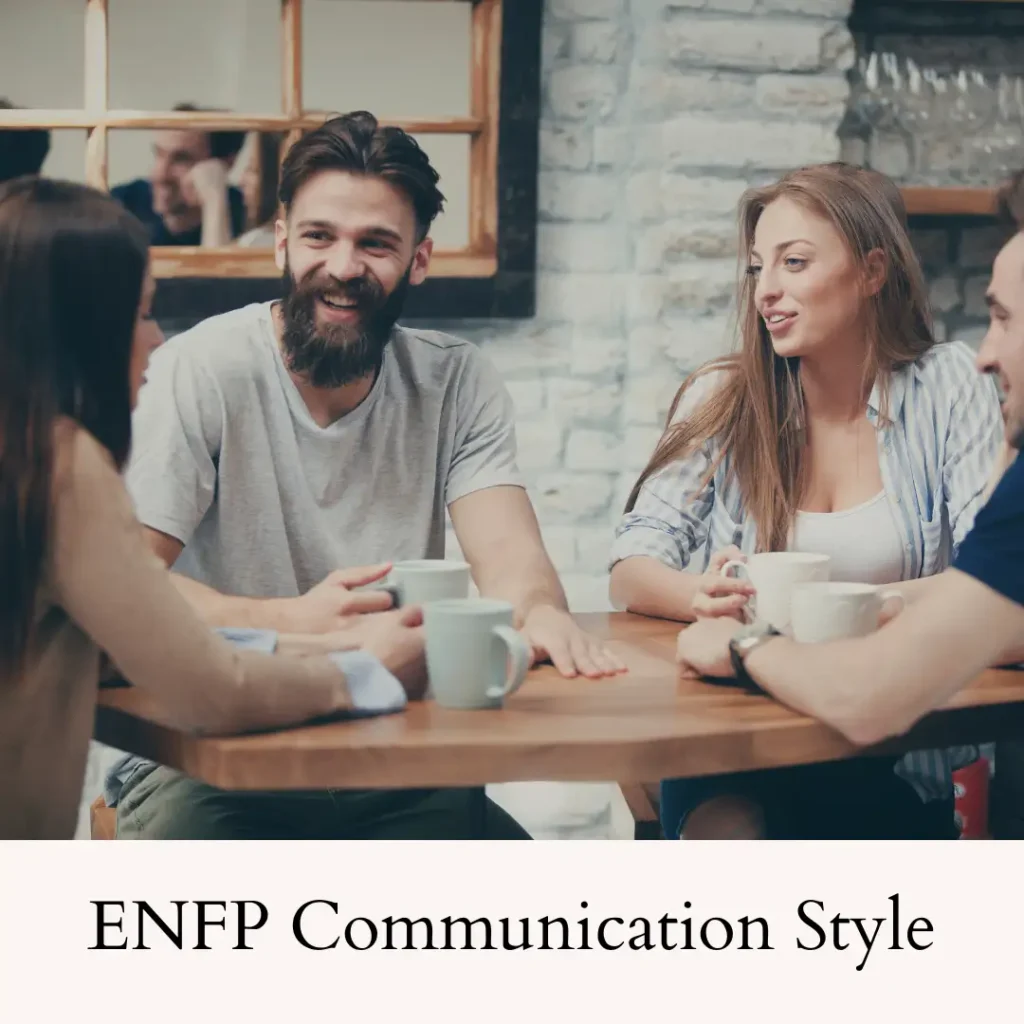
Here are the key traits of the ENFP personality type in communication:
Enthusiastic and Expressive: ENFPs communicate with energy and passion, making conversations lively and engaging.
Empathetic Listeners: They are attentive listeners, genuinely interested in understanding the emotions and perspectives of others.
Inspiring and Motivational: ENFPs use their communication to uplift and inspire, encouraging others to follow their passions.
Open-Minded and Inclusive: They value diverse perspectives and are open to hearing different ideas without judgment.
Creative Storytellers: ENFPs often use vivid language, analogies, and storytelling to communicate their ideas in a compelling way.
Emotionally Transparent: They are open about their feelings, fostering authentic and heartfelt conversations.
Diplomatic and Tactful: ENFPs strive to avoid conflict, and when addressing sensitive topics, they aim to maintain harmony.
Encouraging and Supportive: Their communication style is often centered around offering encouragement and helping others feel valued.
ENFPs are often found in creative, people-oriented roles where they can express their unique ideas and connect with others. Let’s take a look at some famous ENFPs who exemplify the Campaigner personality type:
Key Learning Traits of the ENFP Personality Type
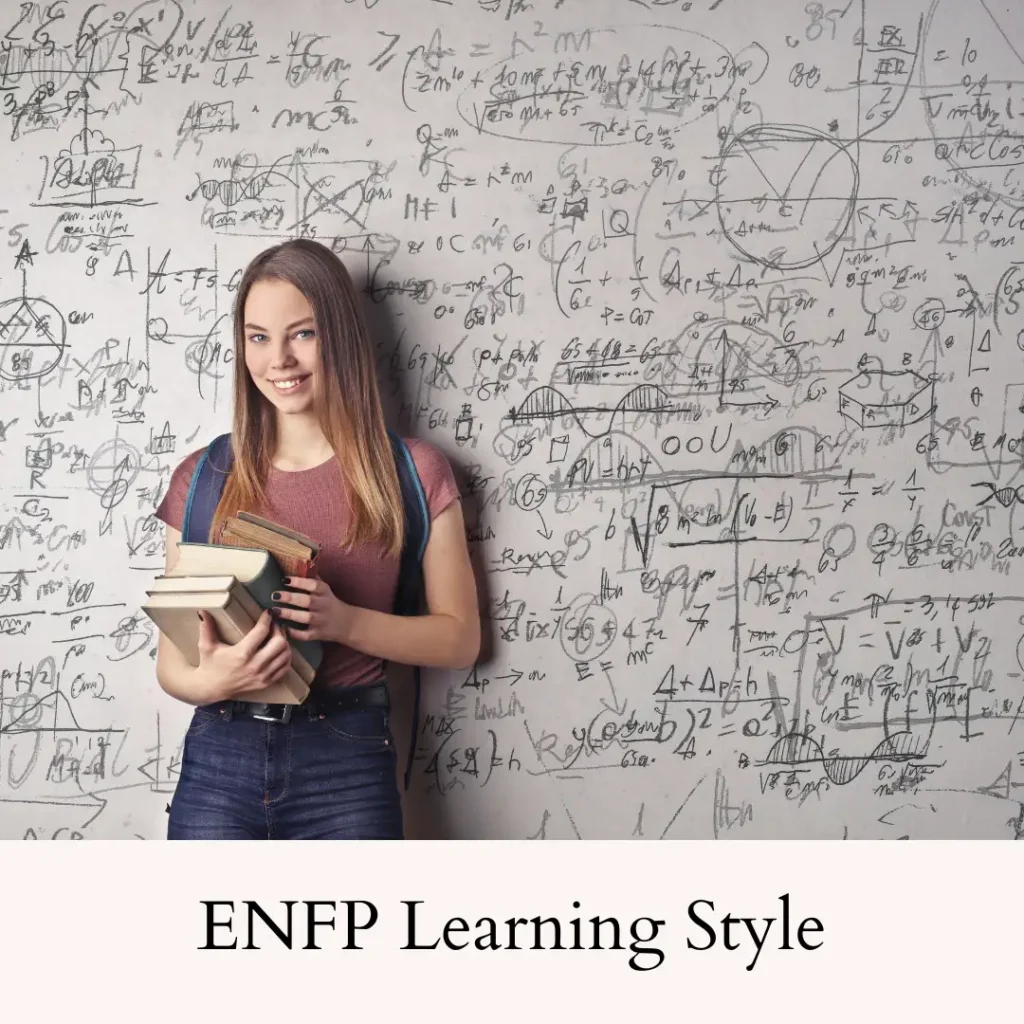
Here are the key traits of the ENFP personality type in learning:
Curious and Open-Minded: ENFPs are eager to explore new ideas and concepts, always seeking to expand their knowledge.
Big-Picture Thinkers: They prefer to understand the broader context and overarching themes rather than focusing on small details.
Creative and Imaginative: ENFPs thrive in learning environments that encourage creativity and allow for self-expression.
Collaborative Learners: They enjoy group discussions and learning through interaction, often gaining insights from others’ perspectives.
Emotionally Engaged: ENFPs are motivated when they can connect emotionally to the subject matter, making it meaningful and relevant.
Motivated by Purpose: They are driven to learn when they see the practical or personal value in the material, especially if it aligns with their goals.
Flexible and Spontaneous: ENFPs prefer a less structured learning environment that allows for flexibility and exploration.
Reflective and Introspective: They often take time to reflect on what they’ve learned and how it applies to their personal growth and experiences.
Key Leadership Traits of the ENFP Personality Type
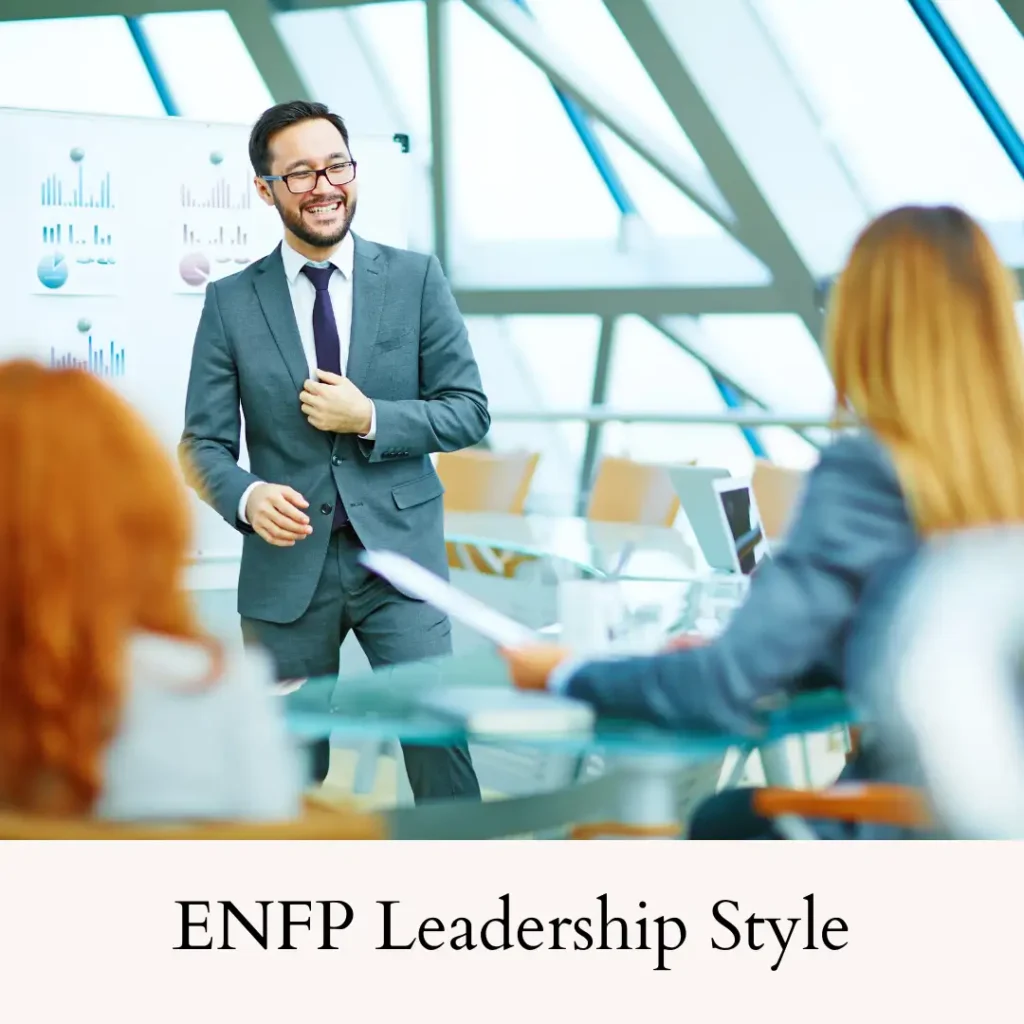
Here are the key traits of the ENFP personality type in leadership:
Inspirational and Visionary: ENFPs lead by inspiring others with their big-picture vision and enthusiasm for positive change.
Empathetic and Supportive: They genuinely care about their team members’ well-being, offering emotional support and encouragement.
Charismatic and Influential: ENFPs’ natural charisma draws people to them, making it easy for them to build rapport and rally others around a common cause.
Creative Problem-Solvers: They bring innovative, out-of-the-box thinking to leadership, often coming up with unique solutions to challenges.
Inclusive and Collaborative: ENFPs value input from their team and encourage open dialogue, fostering a collaborative environment where everyone feels heard.
People-Focused: They prioritize relationships and seek to create a positive, nurturing environment that allows their team to thrive.
Encouraging and Motivational: ENFP leaders are excellent at boosting morale, motivating others to reach their full potential.
Flexible and Adaptable: They are open to change and encourage flexibility, which allows them to navigate challenges and adapt their leadership style as needed.
Key Friendships Traits of the ENFP Personality Type
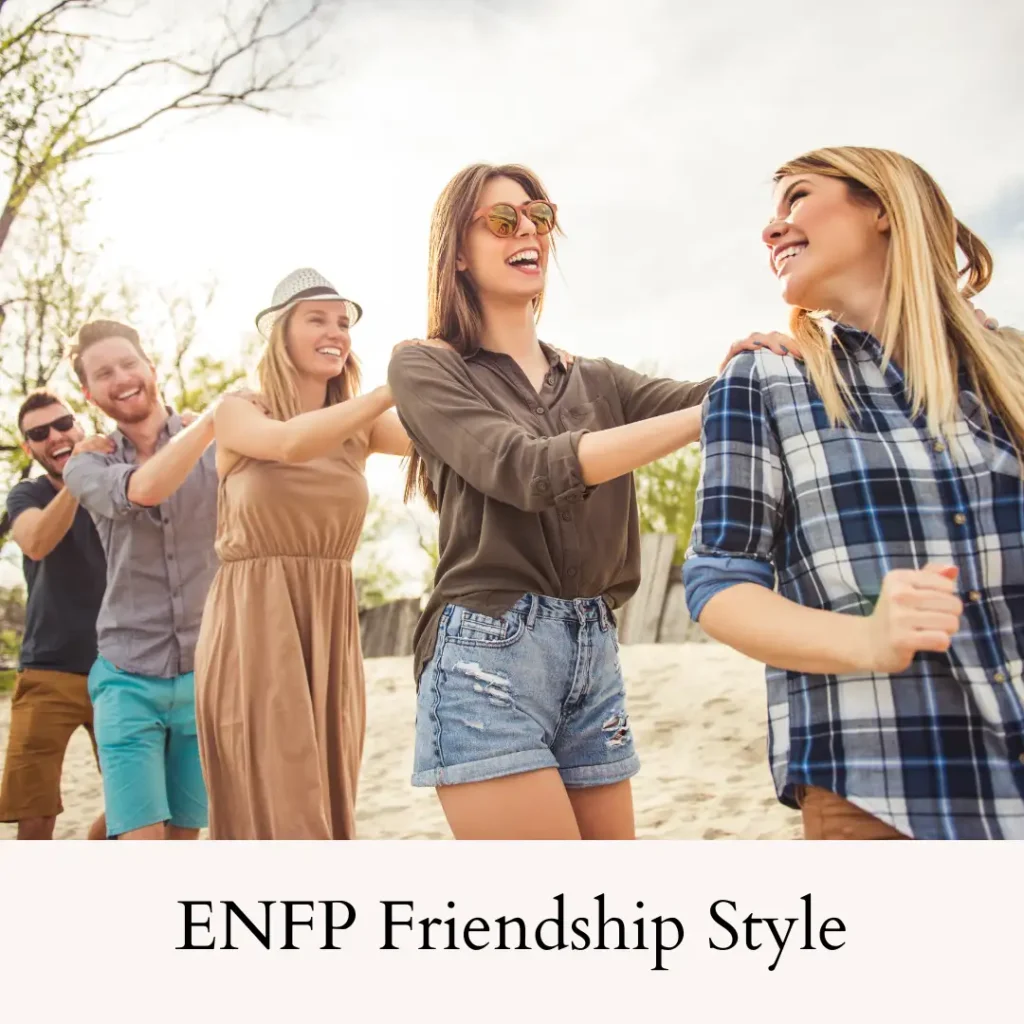
Here are the key friendship traits of the ENFP personality type:
Loyal and Supportive: ENFPs are deeply loyal friends who will stand by those they care about, offering unwavering support and encouragement.
Warm and Approachable: They have a welcoming, friendly demeanor that makes them easy to connect with and open to new friendships.
Empathetic and Understanding: ENFPs are highly empathetic and can easily relate to their friends’ emotions, always ready to listen and provide comfort.
Fun and Spontaneous: They bring energy and excitement to friendships, often suggesting spontaneous adventures or fun activities.
Deep Connection Seekers: ENFPs value meaningful, emotionally deep friendships and seek out close, authentic bonds rather than surface-level interactions.
Encouraging and Uplifting: They are natural cheerleaders who encourage their friends to pursue their dreams and overcome challenges.
Non-Judgmental and Open-Minded: ENFPs are accepting of differences and create a safe space for friends to be themselves without fear of judgment.
Optimistic and Positive: Their optimistic outlook makes them a source of positivity and inspiration, especially during tough times.
Key Love & Intimacy Traits of the ENFP Personality Type
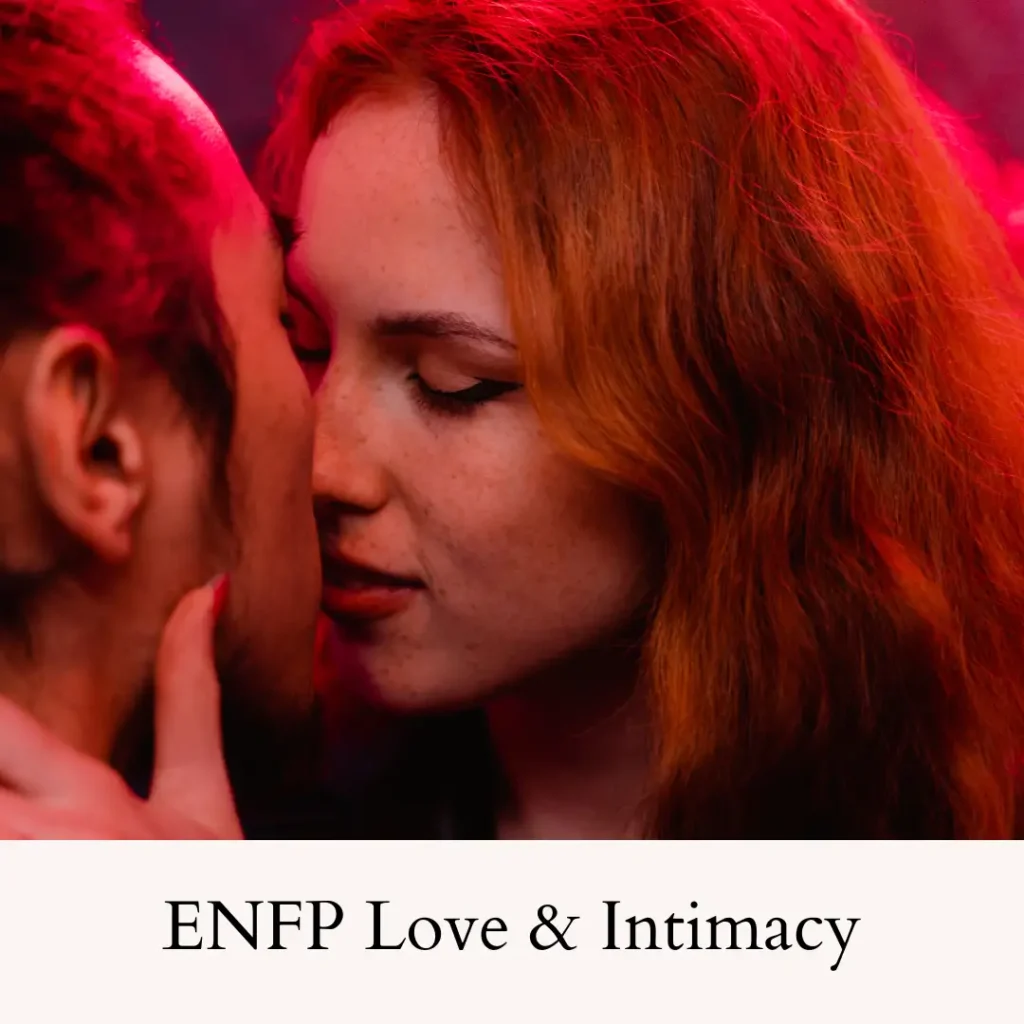
Here are the key love and intimacy traits of the ENFP personality type:
Romantic and Passionate: ENFPs are deeply romantic and express their love with passion and excitement, often going above and beyond to make their partner feel special.
Emotionally Attuned: They are highly empathetic and in tune with their partner’s emotions, always seeking to understand and connect on a deep emotional level.
Supportive and Encouraging: ENFPs are their partner’s biggest cheerleaders, always offering emotional support and encouragement in both personal and shared goals.
Affectionate and Expressive: They are open about their feelings and enjoy expressing love through affectionate gestures, thoughtful words, and meaningful actions.
Adventurous and Spontaneous: ENFPs love to bring excitement into their relationships, often suggesting spontaneous dates or adventurous experiences to keep the relationship fresh and fun.
Value-Driven Connections: They seek partners who share similar values and desires for a deep, meaningful relationship, driven by shared ideals and goals.
Open Communicators: ENFPs believe in open, honest communication, fostering a transparent relationship where feelings and needs are expressed freely.
Conflict-Avoidant Yet Resolute: While they strive for harmony, ENFPs are willing to address conflicts directly to maintain the integrity of the relationship, seeking fair resolutions for both partners.
Suitable Careers for the ENFP Personality Type
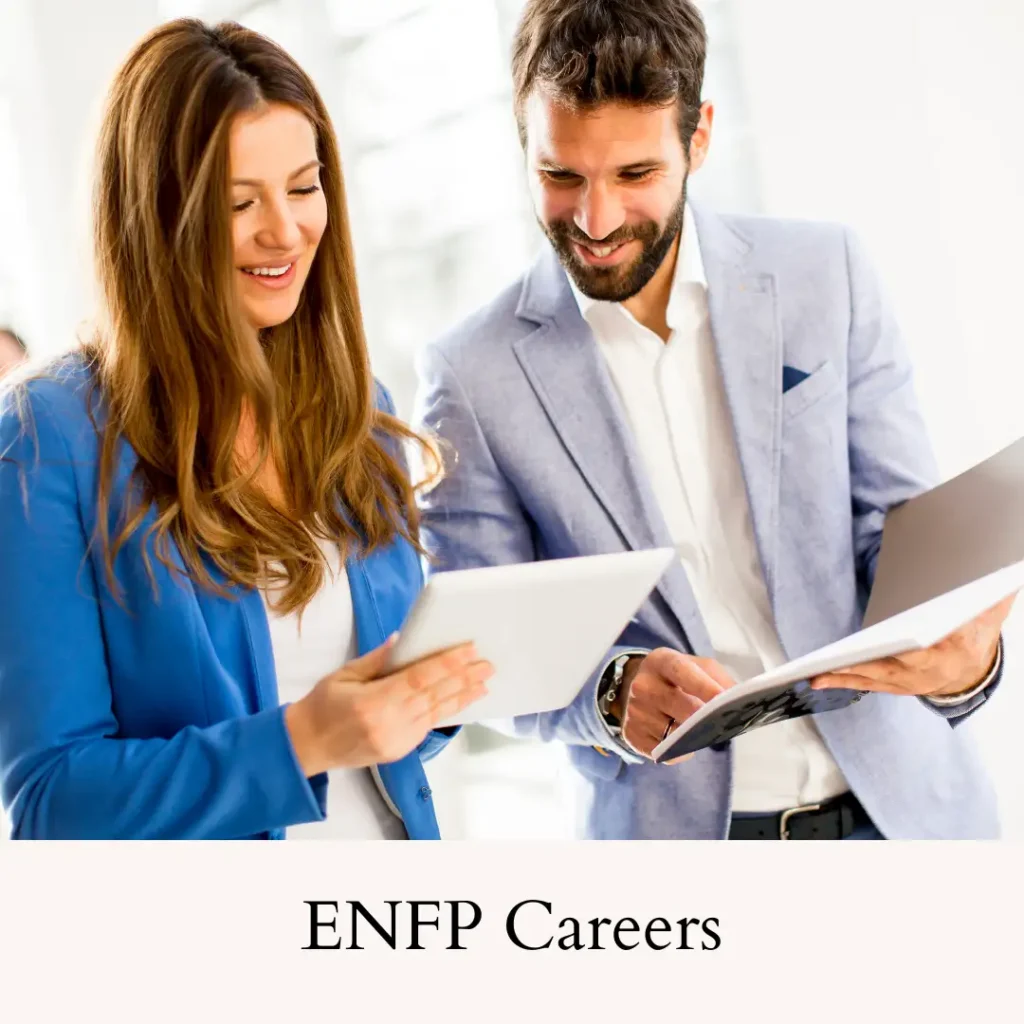
ENFPs thrive in careers that allow them to express their creativity, connect with others, and explore new ideas. They are often drawn to roles that provide variety, flexibility, and opportunities for personal growth.
Here are some of the best career options for ENFPs:
Creative Fields: ENFPs excel in creative roles such as advertising, writing, filmmaking, graphic design, and music. These careers allow them to express their ideas and think outside the box.
Helping Professions: ENFPs are natural caregivers, making them well-suited for careers in counseling, social work, teaching, and coaching. These roles allow them to connect with others on an emotional level and make a positive impact on people’s lives.
Entrepreneurial Roles: ENFPs often thrive as entrepreneurs or in dynamic, fast-paced environments that offer freedom and flexibility. They enjoy the challenge of building something from the ground up and exploring new opportunities.
Public Relations/Marketing: With their strong interpersonal skills and ability to connect with others, ENFPs are well-suited for roles in public relations, marketing, and communication. They excel at promoting ideas and building relationships.
Event Planning: ENFPs’ ability to think creatively and connect with people makes them excellent event planners. They enjoy creating memorable experiences and bringing people together in meaningful ways.
Famous ENFPs and ENFP Celebrities
Robin Williams – Actor and Comedian

Robin Williams’ boundless energy, quick wit, and improvisational genius reflect his ENFP personality. Known for his ability to effortlessly shift between humor and deep emotion, he connected with audiences on a profound level, embodying the empathetic and creative spirit of an ENFP.
Quentin Tarantino – Filmmaker

Quentin Tarantino’s visionary storytelling and bold, unconventional approach to filmmaking are classic ENFP traits. His ability to blend genres and push creative boundaries while maintaining a strong emotional connection with audiences highlights his ENFP drive for innovation and impactful expression.
Jennifer Aniston – Actress

Jennifer Aniston’s bubbly personality and charm reflect her ENFP nature, bringing warmth and relatability to her roles. Her ability to connect deeply with fans through her work showcases her empathy and enthusiasm for storytelling.
Robert Downey Jr. – Actor

Robert Downey Jr.’s charismatic and quick-witted personality is classic ENFP. His innovative approach to acting and ability to reinvent himself through his career align with the creative, free-spirited side of the ENFP personality type.
Sandra Bullock – Actress

Known for her versatility and relatable on-screen presence, Sandra Bullock exemplifies the ENFP’s blend of creativity and empathy. Her down-to-earth personality and commitment to uplifting others highlight her compassionate and inspiring leadership style.
Shakira – Singer and Songwriter

Shakira’s dynamic energy, artistic creativity, and passion for philanthropy reflect the core traits of the ENFP personality type. Her ability to fuse cultures and sounds in her music showcases her open-minded and visionary approach, while her empathy drives her humanitarian work.
Keira Knightley – Actress

Keira Knightley’s ability to embody diverse and complex characters speaks to her ENFP creativity and adaptability. Her passion for storytelling and dedication to impactful roles show her drive to inspire and connect deeply with audiences.
Walt Disney – Entrepreneur and Visionary
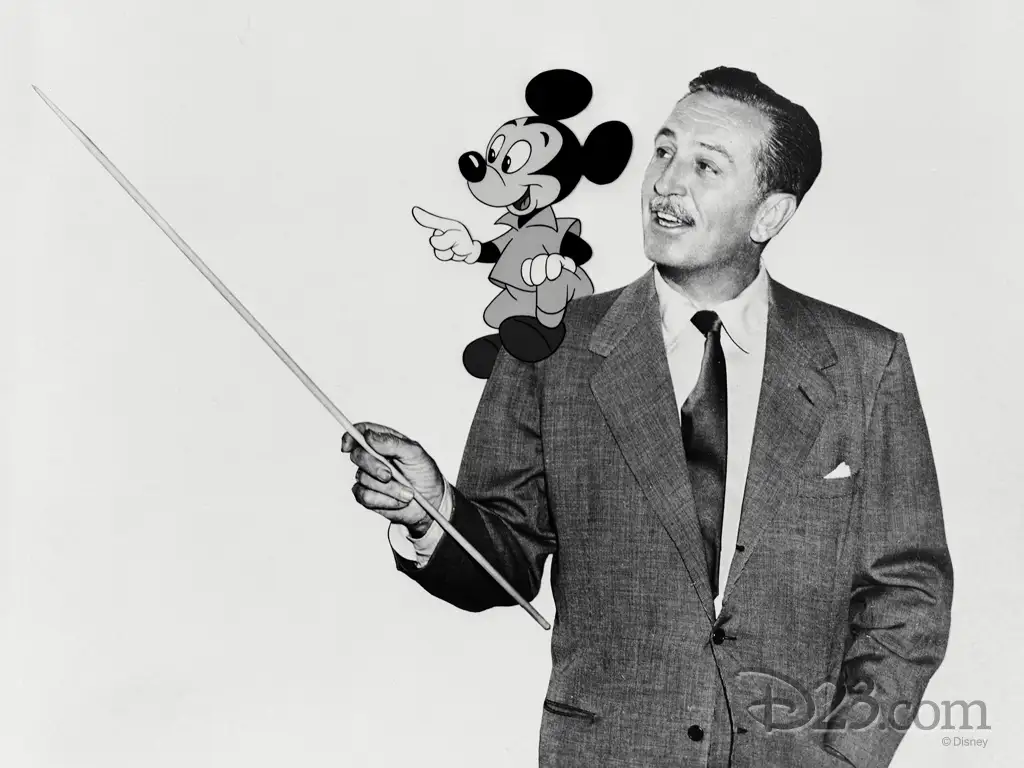
A true ENFP visionary, Walt Disney’s boundless imagination and pioneering spirit changed the world of entertainment. His ability to dream big and turn creative ideas into reality epitomizes the ENFP’s optimistic, future-focused mindset.
Hans Zimmer – Composer
Hans Zimmer’s groundbreaking compositions are a testament to his ENFP creativity and visionary thinking. His innovative approach to music and ability to evoke deep emotions through his scores reflect his passion for exploring new ideas and connecting with others on an emotional level.
Kishore Kumar – Singer, Actor, and Filmmaker
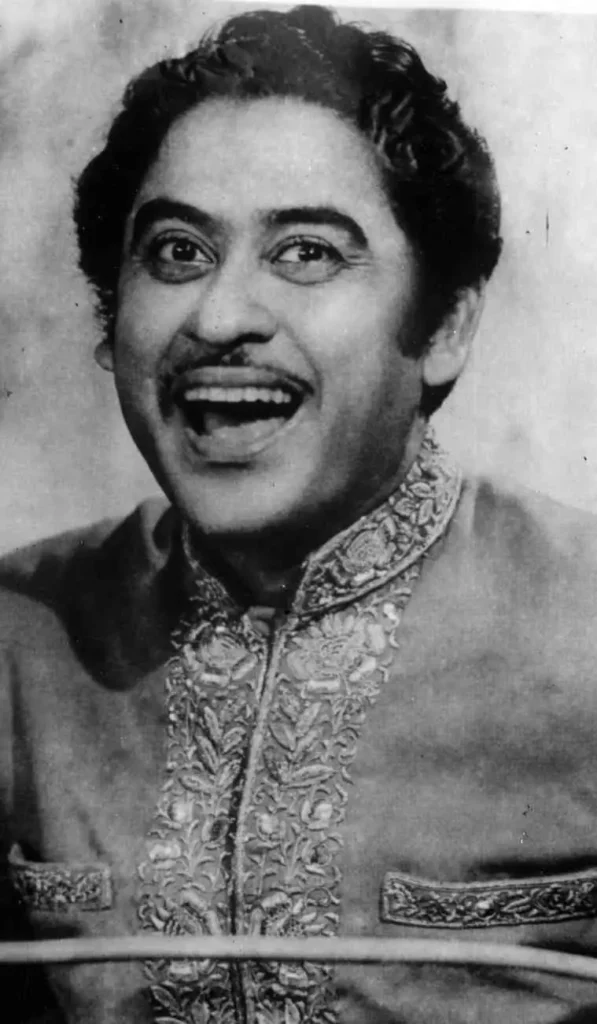
Kishore Kumar’s infectious energy, artistic versatility, and spontaneous performances make him a quintessential ENFP. Known for his playful yet soulful style, he was a master at blending humor, emotion, and creativity in his work.
Will Smith – Actor and Musician

Will Smith’s vibrant personality, humor, and ability to inspire others are trademarks of the ENFP personality type. His boundless energy and passion for creative expression have made him a beloved figure both in acting and music, always seeking to connect and uplift.
These individuals exemplify the creative, charismatic, and visionary qualities that define the ENFP personality type.
Tips for the ENFP Personality Type for Balance & Personal Growth

Here are some tips for the ENFP personality type to achieve balance and manifest personal growth:
Prioritize Self-Care: ENFPs often focus on others’ needs, so it’s important to take time for self-care. Engage in activities that recharge you, such as journaling, meditating, or spending time in nature.
Set Boundaries: Learn to say no when needed and set clear boundaries to avoid overcommitting. This helps prevent burnout and ensures you have time for personal reflection.
Stay Grounded with Structure: While ENFPs prefer flexibility, incorporating a bit of structure into daily routines can improve productivity. Try setting small, manageable goals or following loose schedules to stay on track.
Practice Mindfulness:

Stay present by practicing mindfulness techniques like meditation or deep breathing. This helps calm an overactive mind and reduces stress from overthinking.
Focus on Follow-Through: To avoid leaving projects unfinished, focus on completing one task at a time before moving on to the next idea. Break larger goals into smaller, actionable steps.
Embrace Constructive Feedback: ENFPs can be sensitive to criticism, but viewing feedback as an opportunity for growth can help build emotional resilience and self-improvement.
Balance Idealism with Practicality: While it’s important to dream big, balance idealism with realistic expectations to avoid disappointment. Focus on appreciating small successes along the way.
Create Time for Reflection: Set aside regular time to reflect on your goals, values, and progress. This will help you stay aligned with your purpose and identify areas for personal growth.
Stay Connected to Personal Values: Ensure that your decisions and actions align with your core values, which will help you maintain a sense of purpose and fulfillment.
Delegate and Seek Help: When feeling overwhelmed, don’t hesitate to delegate tasks or seek help from others. Sharing responsibilities can lighten the load and free up mental space.
These tips can help ENFPs find a balance between their natural enthusiasm and the need for grounding in their personal and professional lives.
Research Describing the ENFP Personality Type
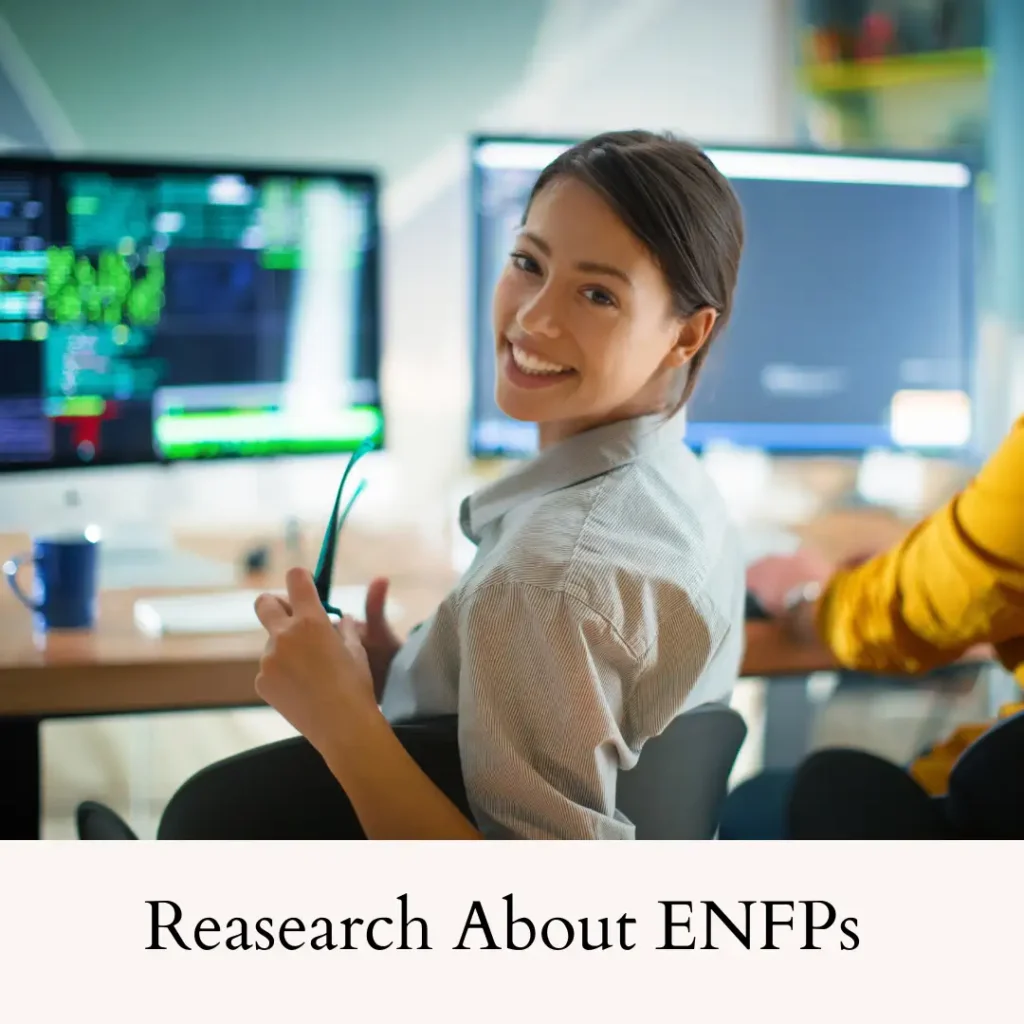
The following data is taken from the MBTI® Manual – Third Edition
– Rated by psychologists the ENFP personality type was among three types most likely to have trouble in school.
– In national sample, the ENFP personality type was ranked highest in valuing “Relationships & friendships” (79.5%), and “Being creative“.
– In national sample, the ENFP Personality Type was dissatisfied with “Promotions” and “Salary”; satisfied with “People I work with” in their work.
– Most important features of an ideal job for the ENFP Personality Type was creativity and originality.
– In the national sample, the ENFP Personality Type was lowest of all the types in liking work environments where “Everything is done by the book”; one of three highest types in liking “Independence & achievement,” “Teamwork,” and “People from different backgrounds.
– The ENFP Personality Type was ranked first of all 16 personality types in using social and emotional coping resources, and second in using cognitive resources.
– In the national sample, the ENFP Personality type was ranked lowest in coping with stress by “Developing Physical Symptoms”
– The ENFP Personality type was overrepresented among a sample of male therapists.
– The ENFP Personality type was overrepresented among new college students referred for a substance abuse workshop.
Conclusion

Understanding the ENFP personality type can provide valuable insights into their strengths, weaknesses, and core traits. Whether it’s their creativity, empathy, or boundless enthusiasm, ENFPs have a unique ability to bring joy, inspiration, and meaningful connection to the world around them.
By embracing their strengths and managing their weaknesses, ENFPs can continue to grow and thrive in all areas of life. If you’re an ENFP, remember that your adventurous spirit and visionary mindset are gifts that can change the world—just don’t forget to take care of yourself along the way!
If you enjoyed this post, don’t forget to check these!
INFJ Personality Type: Best Key Traits, 8 Strengths, and Weaknesses
ENFJ Personality Type: Best Key Traits,5 Strengths and Weaknesses
INFP Personality Type: Best Key Traits, 8 Strengths and Weaknesses
If you found this information helpful, share it with someone who needs it. Also, let me know your thoughts below in the comment section.
